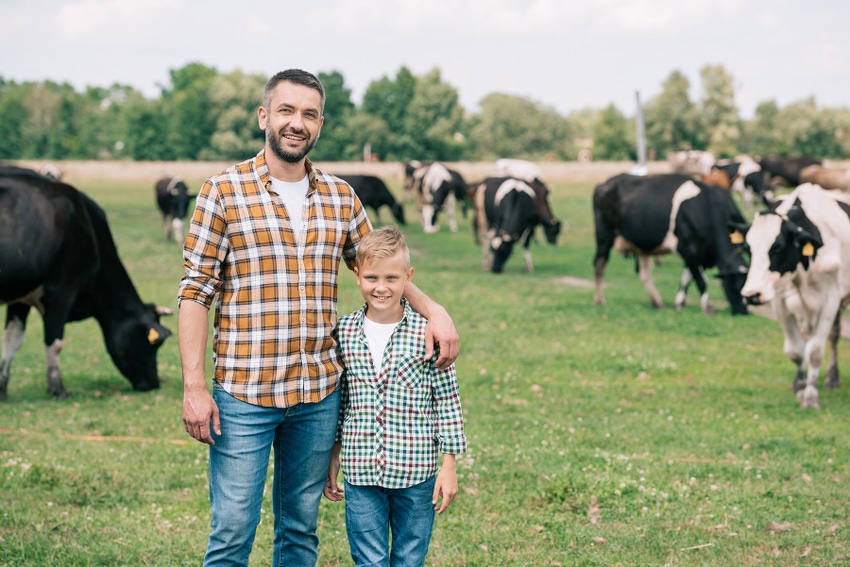Report highlights animal agriculture’s commitment to continuous improvement.

The Animal Agriculture Alliance has released a new report that highlights how the animal agriculture industry shares the same values as today’s consumer with its commitment to animal care, environmental stewardship, responsible antibiotic use, food safety and nutrition.
According to the report, there are about 2.1 million farms scattered throughout the U.S., and 99% of them are operated by families, with 20% of those being beginning farmers.
The 33-page “Sustainability Impact Report” specifically focuses on animal agriculture in the U.S. and covers nine industries: dairy, beef, veal, pork, chicken, turkey, eggs, sheep and aquaculture.
“Animal agriculture has made great strides in environmental stewardship, animal welfare and overall sustainability over the years,” said Kay Johnson Smith, alliance president and chief executive officer. “As new technology and research become available, the industry will continue to innovate and improve.”
The following are environmental stewardship highlights:
According to the Environmental Protection Agency, agriculture accounts for a total of 9% of U.S. greenhouse gas emissions, while livestock production is only 3.9%.
Dairy farmers decreased their carbon footprint by 63% from 1944 to 2007.
Since 1977, cattle ranchers have reduced their carbon footprint by 16%.
Pig farmers decreased their carbon footprint by 7.7% and their water use by 25.1% from 1960 to 2015.
The egg industry reduced its carbon footprint by 71% and its water use by 32% since 1960.
The following are animal welfare highlights:
Hens under the United Egg Producers Certified program account for 95% of all the nation’s laying hens.
The National Chicken Council (NCC) developed the NCC Animal Welfare Guidelines and Audit Checklist, which have been widely adopted within the chicken industry. These guidelines were updated in 2018.
As of January 2019, more than 72,000 pig farmers and farm employees were Pork Quality Assurance Plus certified.
By 2016, 98% of the U.S. milk supply came from dairy farms and cooperatives enrolled in the Farmers Assuring Responsible Management program.
The following are nutrition highlights:
Milk provides nine essential nutrients and is also the number-one food source of calcium, vitamin D and potassium for all Americans ages two years and older.
Today’s pork is 16% leaner and 27% lower in saturated fat compared to 20 years ago.
Lamb is an excellent source of vitamin B12, selenium, zinc and niacin.
One 3 oz. serving of lean beef provides about 50% of the recommended daily value of protein.
One large egg has varying amounts of 13 essential vitamins and minerals, 6 g of protein and only 70 calories.
According to the report, livestock production in the U.S. is a model for the rest of the world for several reasons: (1) it uses advanced genetics, (2) it promotes excellent veterinary care and (3) animals are fed optimal diets.
“Today, modern farms combine the best of traditional farming practices with the benefit of modern technology and agriculture science. Just imagine how farm we’ll go in the future,” the report noted.
Further, the report pointed out that climate change and human health issues are complex and require a “robust, multifaceted approach” from every industry, country and government entity.
“Some critics claim meat, milk, poultry and eggs can be removed from the diet to save the planet and our health. Claiming a seeming simple solution as the cure for human and planet health is not only misguided but irresponsible. There is not a simple solution, because simple solutions only work for simple issues,” the report noted.
Ignoring the benefits of animal protein in diets or the tremendous strides in reducing the impact on the environment is both a disservice to consumers and America’s hardworking farmers and ranchers, the report concluded.
To view the full report, click here.
About the Author(s)
You May Also Like




.png?width=300&auto=webp&quality=80&disable=upscale)
